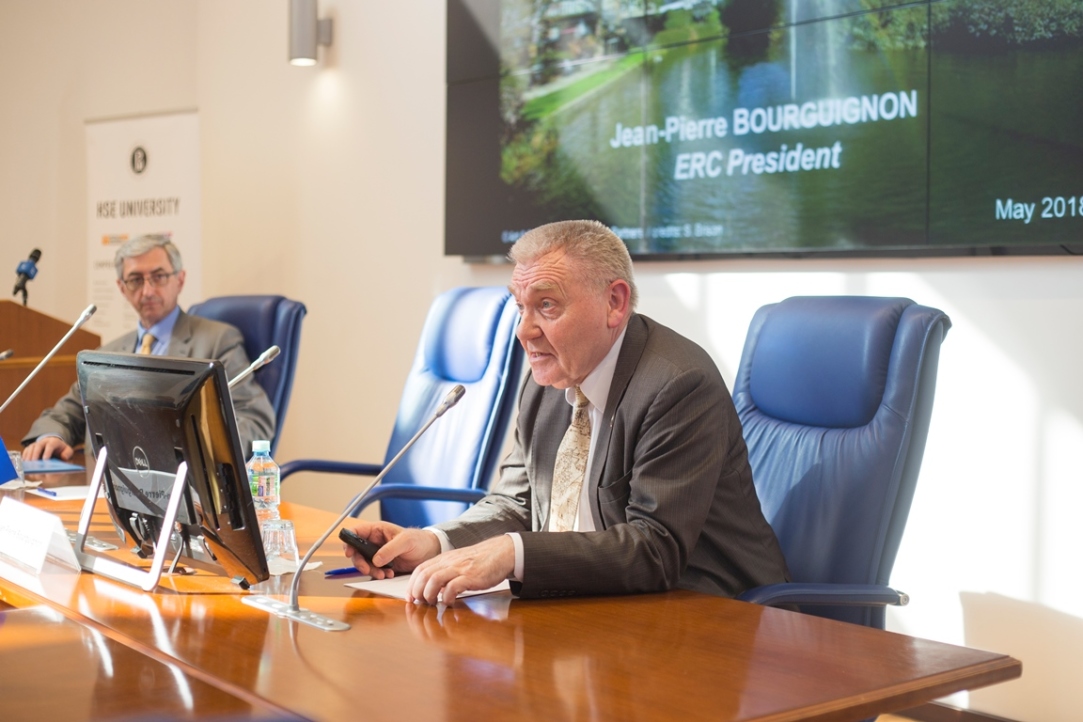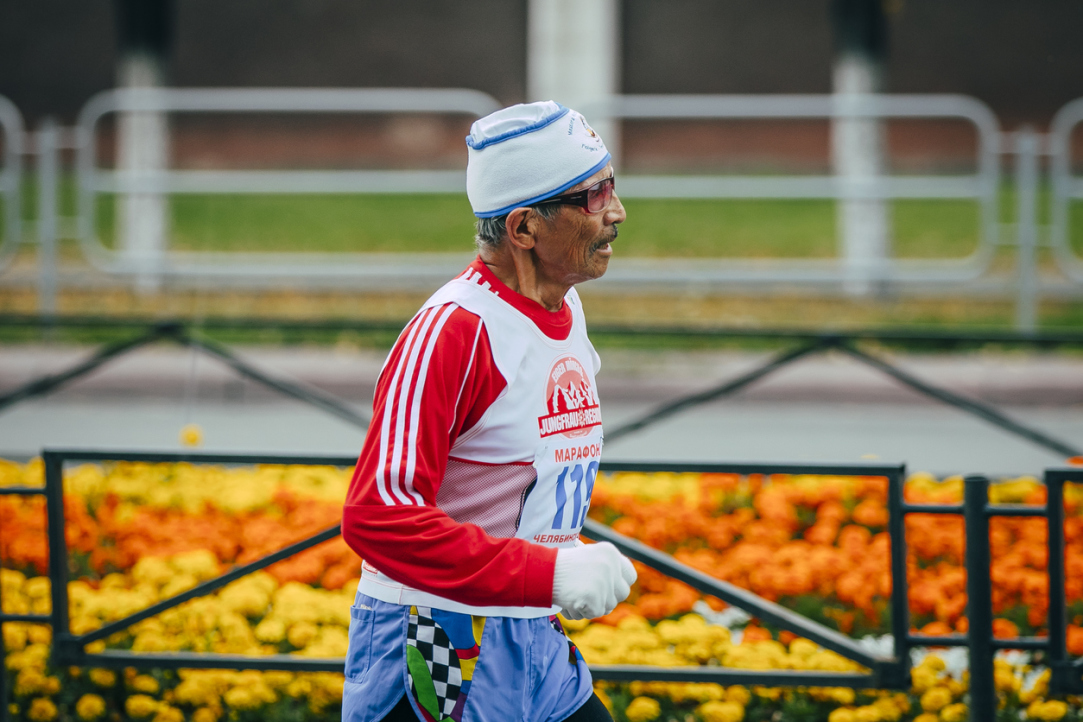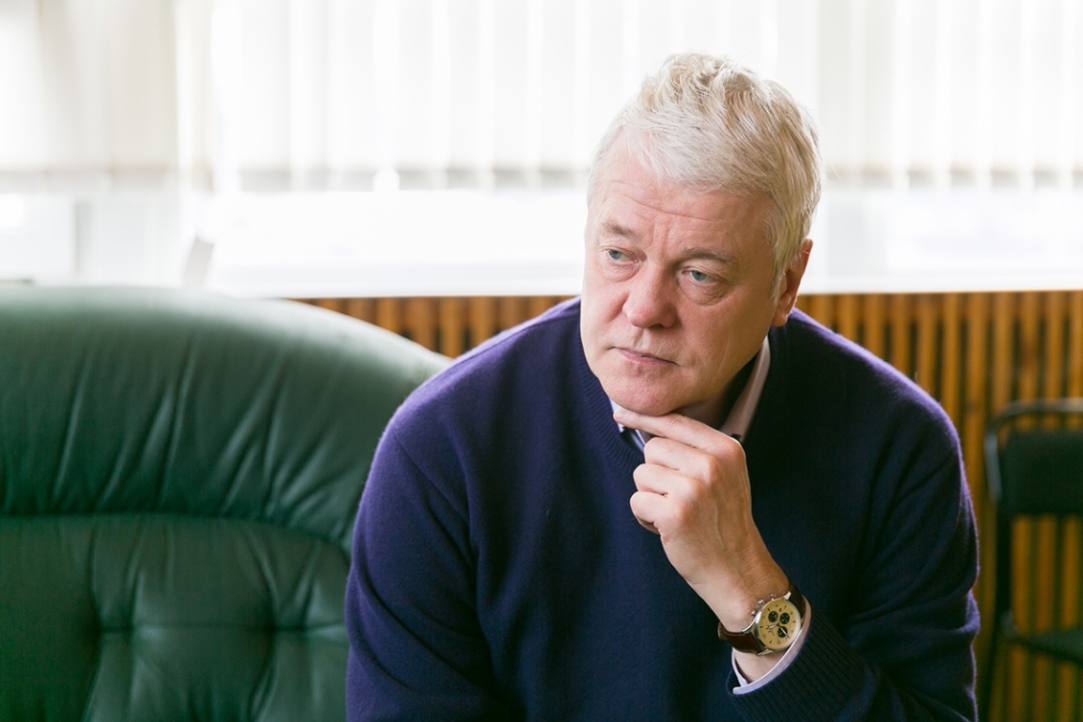Dust Cloud around the Moon
HSE researchers, together with colleagues from Space Research Institute of RAS, MIPT, and the University of Colorado, ventured to find out where the plasma-dust cloud around the Moon comes from. To do this, they compared theoretical calculations with experimental data and theorized that this cloud likely consists of matter that rose from the Moon’s surface as a result of meteoroid collisions.

European Research Council Provides Public Funding for Research & Innovation
On Wednesday, 16 May 2018, the President of the European Research Council (ERC), Professor Jean-Pierre Bourguignon, gave an open lecture at HSE on ‘Public funding for research & innovation: The experience of the European Research Council’. The lecture was organized by HSE together with the Delegation of the European Union to the Russian Federation.

Working or Protesting
The higher the unemployment rates in Western European countries, the more likely it is that socio-political destabilization will occur. At the same time, the highest levels of unemployment in Eastern European countries are accompanied by anti-government protests of very low intensity. This is just one of the conclusions made by HSE experts in their paper ‘Unemployment as a predictor of socio-political destabilization in Western and Eastern European countries’.
‘Science Should Help in Bridging Gaps’
International cooperation in science and innovation is not only able to help solve global issues, such as the battle against climate change, hunger and incurable diseases, but also to overcome political disagreement between countries.

Unfit: Why Seniors Don’t Care about Their Health
Seniors in Russia are not responsive to public promotion of healthy living. Their behaviours follow eight different patterns, and a healthy lifestyle is far from being the most popular one. Only 17% of elderly people live what can be termed a 'healthy' lifestyle, Elena Selezneva discovered. The results of the study were presented at the XIX April International Academic Conference on Economic and Social Development at HSE.
HSE Enters Expert’s Research Productivity Ranking in 10 Subjects
The Higher School of Economics has entered the Expert Analytical Centre’s ranking in 10 subjects. The ranking studies the research productivity of Russian universities. In five subject areas, the university has taken first position in the ranking.

Predictions Only Hold Scientists Back
Together with his colleagues, Igor Kukushkin, Chief Research Fellow at the Institute of Solid State Physics (Russian Academy of Sciences) and Professor at the Faculty of Physics at the Higher School of Economics, has founded two scientific-commercial enterprises. Their products are used in a range of areas, including pharmaceuticals and medicine, as well as to control the quality of various materials and even in the fight against terrorism. Igor Kukushkin spoke to the HSE news service about how to combine science and business.

The Keepers of the Ruble
Post-Soviet life and the economic ups and downs of recent years have changed the attitude of Russians towards saving. Now, it is not the less fortunate who save, but the more intelligent, according to Elena Berdysheva and Regina Romanova. Or, more to the point, it’s the more intelligent women: domestic finances are usually dealt with by females. At HSE’s recent XIX April International Academic Conference, researchers explained how Russians adjusted and optimized family budgets following the crisis of 2014-2017 and how this relates to gender issues.

BRICS Countries Look for Their Place in Biotechnology Market
Over the past 20 years, the BRICS countries' contribution to biotechnology development has increased manyfold, but it may be too early to predict a change of global leaders in this field, according to HSE ISSEK researchers who examined biotechnology patenting in the BRICS countries and published their findings in Trends in Biotechnology.

HSE Student to Present at Association for Computational Linguistics Conference
An article by HSE Faculty of Computer Sciences senior Artyom Gadetsky was accepted for presentation at the Association for Computational Linguistics international conference, the only A* level conference on computational linguistics. According to the CORE system, which ranks large conferences in computer science, the category A* is the highest level for a conference.

